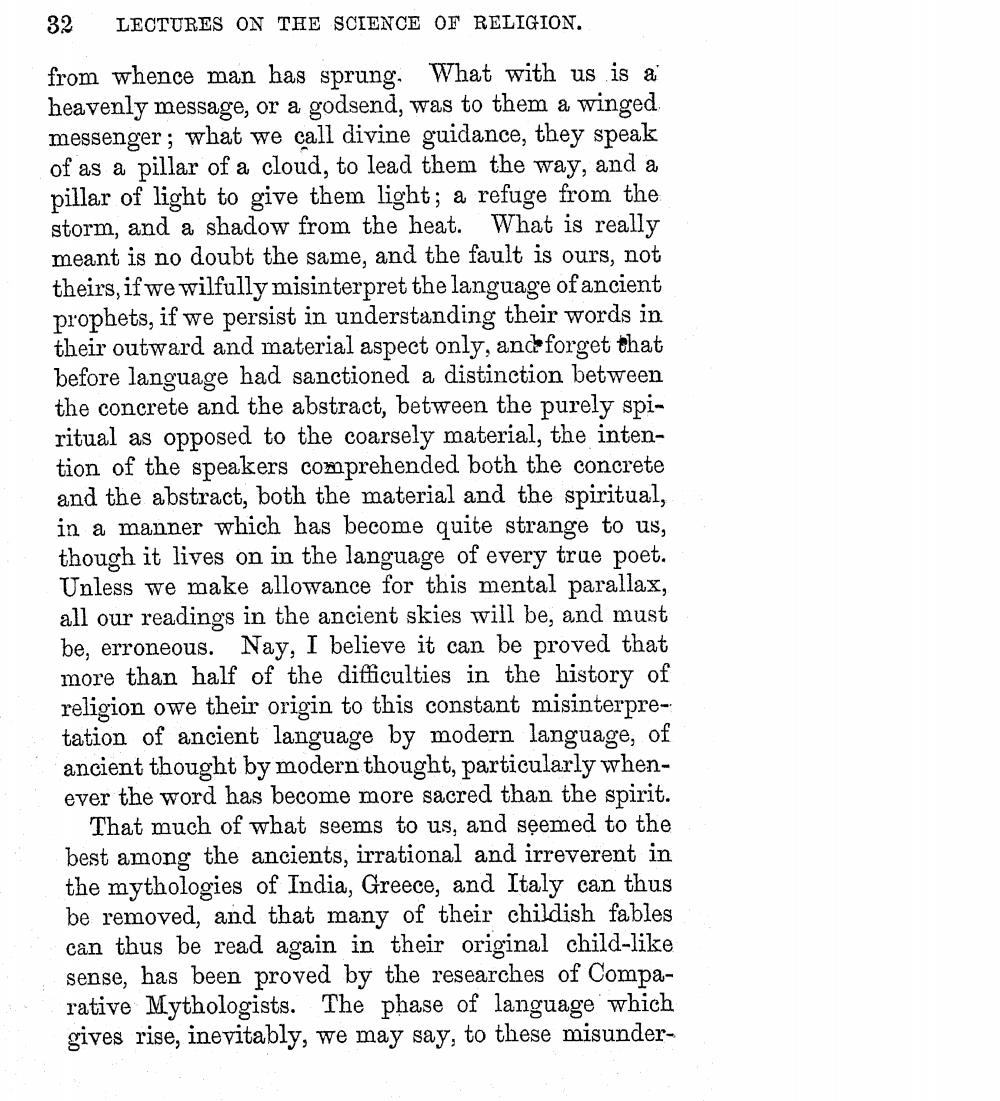________________
32 LECTURES ON THE SCIENCE OF RELIGION. from whence man has sprung. What with us is a heavenly message, or a godsend, was to them a winged messenger; what we call divine guidance, they speak of as a pillar of a cloud, to lead them the way, and a pillar of light to give them light; a refuge from the storm, and a shadow from the heat. What is really meant is no doubt the same, and the fault is ours, not theirs, if we wilfully misinterpret the language of ancient prophets, if we persist in understanding their words in their outward and material aspect only, and forget that before language had sanctioned a distinction between the concrete and the abstract, between the purely spiritual as opposed to the coarsely material, the intention of the speakers comprehended both the concrete and the abstract, both the material and the spiritual, in a manner which has become quite strange to us, though it lives on in the language of every true poet. Unless we make allowance for this mental parallax, all our readings in the ancient skies will be, and must be, erroneous. Nay, I believe it can be proved that more than half of the difficulties in the history of religion owe their origin to this constant misinterpretation of ancient language by modern language, of ancient thought by modern thought, particularly whenever the word has become more sacred than the spirit.
That much of what seems to us, and seemed to the best among the ancients, irrational and irreverent in the mythologies of India, Greece, and Italy can thus be removed, and that many of their childish fables can thus be read again in their original child-like sense, has been proved by the researches of Comparative Mythologists. The phase of language which gives rise, inevitably, we may say, to these misunder




